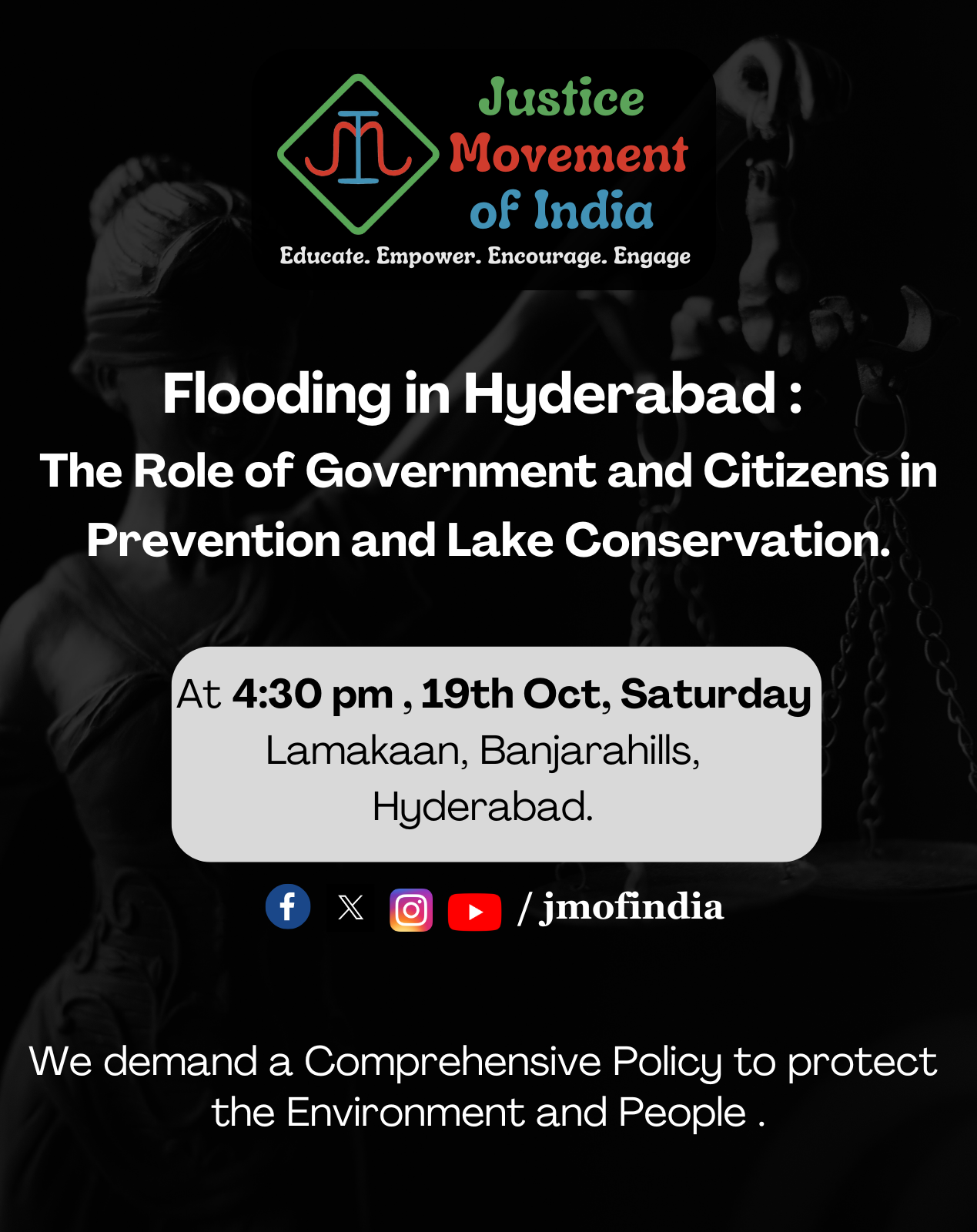«Prev From Feb 11, '26 to Mar 13, '26 Next»

9137
Flooding in Hyderabad
Sat Oct 19, 4:30 PM
Akarsh Sriramoju
Flooding in Hyderabad: The Role of Government and Citizens in Prevention and Lake Conservation.
Even a small rainfall brings Hyderabad to a standstill. Traffic halts, colonies flood, and essential items are submerged. This urgent situation demands our immediate attention. What historical mistakes have led to this? What are the immediate and long-term solutions? And what responsibilities do both citizens and the government hold in addressing this crisis? There are several laws in place, like The Environmental Protection Act of 1986, The Telangana Water, Land, and Trees Act of 2002, The Water (Prevention and Control of Pollution) Act of 1974, and The Air (Prevention and Control of Pollution) Act of 1981. These laws empower authorities such as the State Pollution Control Board and WALTA officials to protect our environment at the State, District, Divisional, and Mandal levels. But despite these regulations, why is the destruction of lakes and unchecked flooding continuing? Recently, the Telangana government introduced HYDRA (Hyderabad Disaster Response and Asset Monitoring and Protection Agency) to safeguard the city's lakes and commons. However, the critical question remains: Do we have a comprehensive, long-term policy for protecting our environment and the safety of our people in our state? A comprehensive policy is urgently needed—one that addresses lake restoration, sustainable urban planning, drainage infrastructure, rainwater harvesting, and strict enforcement of environmental laws. It must integrate ecological conservation with flood management to ensure long-term protection for both the environment and the people of Hyderabad. Only through united, coordinated efforts between the government and active citizen participation can we prevent recurring floods and environmental damage. Therefore, let us come together to discuss the necessity of a compressive policy and recommendations from the Justice Movement of India (JMI).
JMI Website: https://justicemovementofindia.org/
Even a small rainfall brings Hyderabad to a standstill. Traffic halts, colonies flood, and essential items are submerged. This urgent situation demands our immediate attention. What historical mistakes have led to this? What are the immediate and long-term solutions? And what responsibilities do both citizens and the government hold in addressing this crisis? There are several laws in place, like The Environmental Protection Act of 1986, The Telangana Water, Land, and Trees Act of 2002, The Water (Prevention and Control of Pollution) Act of 1974, and The Air (Prevention and Control of Pollution) Act of 1981. These laws empower authorities such as the State Pollution Control Board and WALTA officials to protect our environment at the State, District, Divisional, and Mandal levels. But despite these regulations, why is the destruction of lakes and unchecked flooding continuing? Recently, the Telangana government introduced HYDRA (Hyderabad Disaster Response and Asset Monitoring and Protection Agency) to safeguard the city's lakes and commons. However, the critical question remains: Do we have a comprehensive, long-term policy for protecting our environment and the safety of our people in our state? A comprehensive policy is urgently needed—one that addresses lake restoration, sustainable urban planning, drainage infrastructure, rainwater harvesting, and strict enforcement of environmental laws. It must integrate ecological conservation with flood management to ensure long-term protection for both the environment and the people of Hyderabad. Only through united, coordinated efforts between the government and active citizen participation can we prevent recurring floods and environmental damage. Therefore, let us come together to discuss the necessity of a compressive policy and recommendations from the Justice Movement of India (JMI).
JMI Website: https://justicemovementofindia.org/

